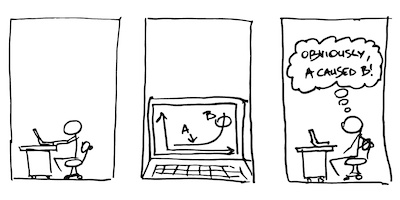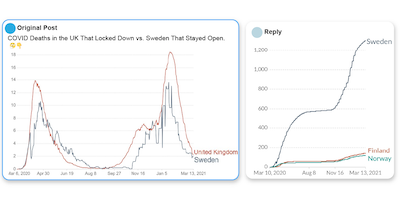Abstract
In a time of crisis, such as during a hurricane or a global pandemic, social media is an important source of information for the general population. In these scenarios, data visualizations are often used to convey information that is critical for decision making by individuals. For example, a visualization of the path of a hurricane can inform the affected population about the need to prepare or evacuate; while a visualization about the prevalence of a disease in a certain area can inform personal choices, such as limiting interactions with others during a relevant time period. Visualizations, however, can be flawed, which can lead to misinterpretation of the data, and, in a crisis, lead to decisions with negative consequences. This project seeks to identify aspects of visualizations that makes them widely shared, identify flaws a visualization might have, and warn social media users about them. Ultimately, this project can lead to better responses to a crisis by the general population, and contribute to improving visualization literacy.
These goals will be achieved by applying existing and novel methods, such as topic modeling and calculating measures of social attention, to three large dataset of social media posts related to recent crisis. Using a qualitative coding approach, a taxonomy of design problems will be developed. This taxonomy will be used to label a large dataset. Finally, a prototype intervention in the form of a plug-in that warns of problematic visualizations, but also enables users to classify problems with visualizations they encounter, will be developed. The dataset and the annotations compiled in the course of this project will be shared publicly. The software created will be released under a permissive, non-viral open source license.
Publications

Misleading Beyond Visual Tricks: How People Actually Lie with Charts
SIGCHI Conference on Human Factors in Computing Systems (CHI), 2023

‘Yeah, this graph doesn't show that’: Analysis of Online Engagement with Misleading Data Visualizations
SIGCHI Conference on Human Factors in Computing Systems (CHI) (to appear), 2024
VDL Project Staff
VDL Project Alumni
- Sunny Siu
Other Staff
- Marina Kogan
- Cole Polychronis


